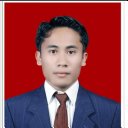Anregurutta H. Abdul Malik Muhammad's Approach to Da'wah Communication to Socio-Religious Change in Belawa Society
Keywords:
Anregurutta H. Abdul Malik Muhammad, Islamic Communication Approach, Socio-Religious Change,Abstract
This thesis examines the approach to Islamic communication (da'wah) of Anregurutta H. Abdul Malik Muhammad and its impact on the socio-religious changes in the Belawa community. This study aims to understand Anregurutta's communication and da'wah approach, identify the media used for da'wah, and analyze the socio-religious changes that occurred in the Belawa community. This research employs a qualitative method with data collection techniques through in-depth interviews with informants selected using purposive sampling. The data obtained is analyzed thematically to identify relevant patterns and meanings. The results of the study indicate that Anregurutta H. Abdul Malik Muhammad's approach to Islamic communication emphasizes the principles of Sipakainge (mutual reminding/advising), Siammasei (mutual affection), and Ade Tongang (truthful speech), along with a friendly, easily understood, and persuasive communication style. The media used for da'wah include the Darussalam Mosque, the Madrasah Arabiyah Islamiyah (Islamic Arabic School), and Safari Dakwah (itinerant preaching). The impact of this approach is evident in the socio-religious changes in the Belawa community, particularly in terms of the transformation of religious values, shifts in patterns of socio-religious interaction, socio-religious life, and the strengthening of religious practices.
Â
Downloads
References
Muhammad Qadaruddin Abdullah, Cetakan Biru Mahir Berdakwah Mengubah Dakwah Biasa Jadi Wah! Sulawesi Selatan : Cv Kaaffah Learning Center,2018.
Samsul Munir Amin, Sejarah Dakwah, Jakarta: Bumi Aksara, 2014.
Moh. Ali Aziz, Ilmu Dakwah, Edisi Revisi, Jakarta: Kencana, 2024.
Allo Liliweri , Komunikasi Interpersonal, Jakarta: Kencana, Edisi 1, 2015
Ahmad Sultra Rustan, Pola Komunikasi Orang Bugis, Yogyakarta: Pustaka Pelajar,2018.
Saprillah, Pengabdian Tanpa Batas Biografi Anregurutta Haji Abdul Malik Muhammad, Jawa Tengah: Zadahaniva Publishing, 2014.
Sirajuddin Saleh,"Analisis data kualitatif." Bandung : Pustaka Ramadhan, 2017.
Syamsuddin, AB, Pengantar Sosiologi Dakwah, Jakarta: Kencana Prenadamedia Group,2016.
H.M Taufik., Etika Komunikasi; Komparasi Komunikasi Islam Dan Barat, Cet. I, Bandung; Pustaka Setia, 2012.
Samsul Munir Amin, Ilmu Dakwah, cet. Ke- I, Jakarta: Amzah, 2009.
Anang Sugeng Cahyono. "Pengaruh media sosial terhadap perubahan sosial masyarakat di Indonesia." Dalam jurnal Publiciana, Vol 9. No.1, 2016.
Fathurrohman, Mukhlis, Pendekatan Dakwah Dalam Membangun Mental Masyarakat Kota Surakarta,https://jurnal.syntaxliterate.co.id/index.php/syntaxliterate/article/view/10831/6382, (tanggal 17 Agustus 2023).
Anisah Indriati, Pengaruh Pondok Modern Assalam terhadap perubahan sosial keagamaan masyarakat sekitarnya, https://ejournal.uin-suka.ac.id/ushuluddin/esensia/article/view/122-09, (tanggal 20 juni 2023).
Mubasyaroh, Strategi Dakwah Persuasif dalam Mengubah Perilaku Masyarakat, https://journal.uinsgd.ac.id/index.php/idajhs/article/view/2398, (tanggal 20 Juni 2023).
Abubakar Madani, Dakwah dan Perubahan Sosial: Studi Terhadap Peran Manusia sebagai Khalifah di Muka Bumi https://journal.uinsi.ac.id/index. php/lentera/article/view/851/536, (tanggal 17 Agustus 2023).
Published
How to Cite
Issue
Section
Citation Check
License
Copyright (c) 2024 sirajuddin sirajuddin

This work is licensed under a Creative Commons Attribution-NonCommercial-ShareAlike 4.0 International License.
Authors who publish with Jurnal Dakwah dan Komunikasi agree to the following terms:- Authors retain copyright and grant the journal right of first publication with the work simultaneously licensed under a Creative Commons Attribution-NonCommercial-ShareAlike 4.0 International License (CC BY-NC-SA 4.0) that allows others to share the work with an acknowledgment of the work's authorship and initial publication in this journal.
- Authors are able to enter into separate, additional contractual arrangements for the non-exclusive distribution of the journal's published version of the work (e.g., post it to an institutional repository or publish it in a book), with an acknowledgment of its initial publication in this journal.
- Authors are permitted and encouraged to post their work online (e.g., in institutional repositories or on their website) prior to and during the submission process, as it can lead to productive exchanges, as well as earlier and greater citation of published work (See The Effect of Open Access).














